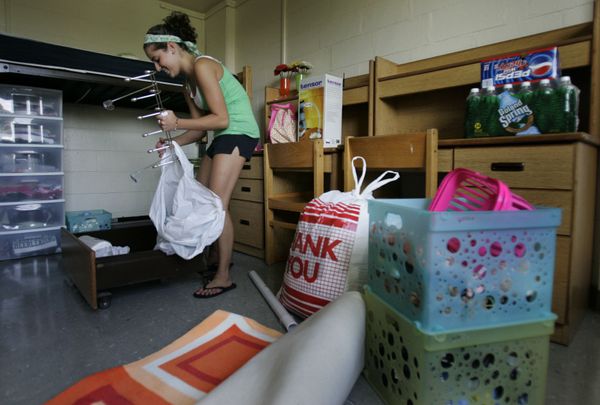I confess. I was the dirty roommate.
I didn't (and don't) vacuum, mop or dust. I was (and am) blind to all things smudgy and crummy. My college roommate, on the other hand, did all three and had excellent vision. Imagine her disappointment about a week-and-a-half into living with me.
Advertisement
Still, even when a "clean type" (I like to call them that) finds him- or herself in a single, entirely in control, a dorm room can offer some special challenges. In short: Most dorm rooms are tiny. On average, about 230 square feet (21 square meters), which is smaller than the smallest possible one-car-garage [sources: Dimensions Info, Rees].
This has cleaning up-sides. Vacuuming or sweeping is a 90-second job. The big problem is this: The smaller the space, the bigger the clutter. And when that small space serves as bedroom, study room, entertainment center and makeshift kitchen, it only shrinks. One outfit left on the floor can change everything when the amount of open floor space is about the size of a pair of jeans. Remnants of a microwave breakfast left in the trash can turn a dorm room into nothing but stink in the time it takes to sleep through one class.
For many students, it's not even just about cleanliness. Stink and clutter can make concentrating on a research paper or entertaining guests somewhat hard.
So students, especially first-timers, can find themselves in a pickle. It's not hopeless, though. A dorm room can be as clean as you, and your roommate, need it to be. It may take some revision in cleaning habits – and in your needs – but it's doable.
First step: Look around. What about your room is dirtier or messier than you need it to be? Chances are, what you see is going to fall into some pretty standard categories.
Advertisement




